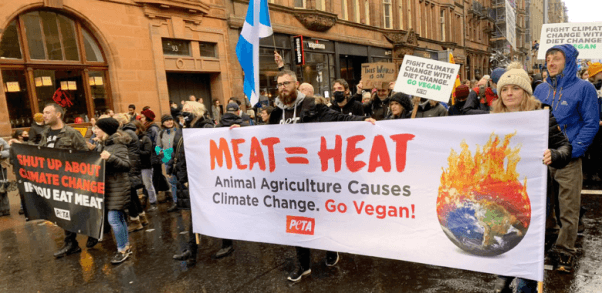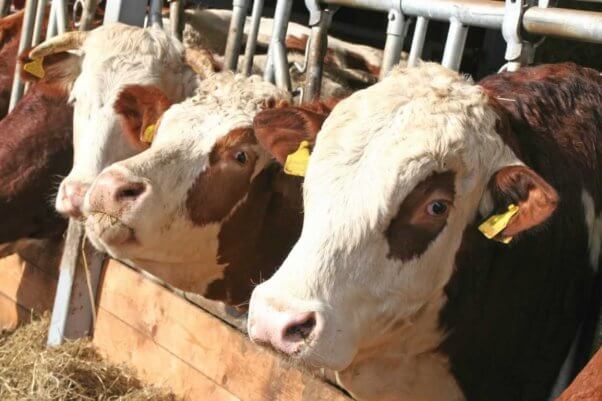Should Hurricanes and Storms Be Named After Climate-Harming Industries?
Hurricane Ham and Tropical Storm Salami could be on your local Doppler radar sometime soon. Following the devastation and deaths caused by Hurricane Otis, PETA is calling for a new policy to name tropical storms and hurricanes after beef, butter, cheese, and other animal-derived foods, as the production of these cruel items contributes greatly to the climate catastrophe.
PETA rushed a letter to Abdulla Al Mandous, president at the World Meteorological Organization, urging him to enact the new policy to highlight the fact that animal-abusing industries are making cyclones, hurricanes, and tropical storms ever more devastating and frequent.
How Animal Agriculture Is Linked to the Climate Catastrophe
The United Nations states that about a third of all human-caused greenhouse gas emissions are linked to food production—with the largest percentage of these gases, particularly methane, coming from the meat and dairy industries—and reports that a global shift toward vegan eating is vital in order to combat the worst effects of the climate catastrophe.
According to the U.S. Department of Agriculture, the waste from just 200 cows produces as much nitrogen as the sewage from a community of up to 10,000 humans. Rainforests, prairies, and wetlands are systematically destroyed and converted to farmland in order to grow the enormous number of crops needed to feed cows. A typical cow produces 120 pounds of waste each day—and when this manure is used as fertilizer, it can contaminate streams and lakes, destroy entire ecosystems, poison food products, and pollute the atmosphere with ammonia and methane. None of this is the cows’ fault—they don’t want to be exploited any more than we want the environment to be destroyed.
Cows are social animals who form complex relationships with others in their herd. They love their calves and enjoy frolicking with friends in green pastures at sanctuaries. However, more than 29 million cows suffer and die in the meat and dairy industries every year in the U.S. alone.
Storm the Vegan Aisle Instead: Go Vegan Today
Vegan foods—such as fruits and vegetables, whole grains, beans, peas, nuts, and lentils—require less land, energy, and water to produce. Plus, eating vegan foods means you aren’t contributing to the exploitation and cruelty of the meat and dairy industries. Storm the vegan aisle next time you go shopping!



